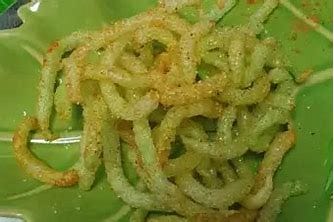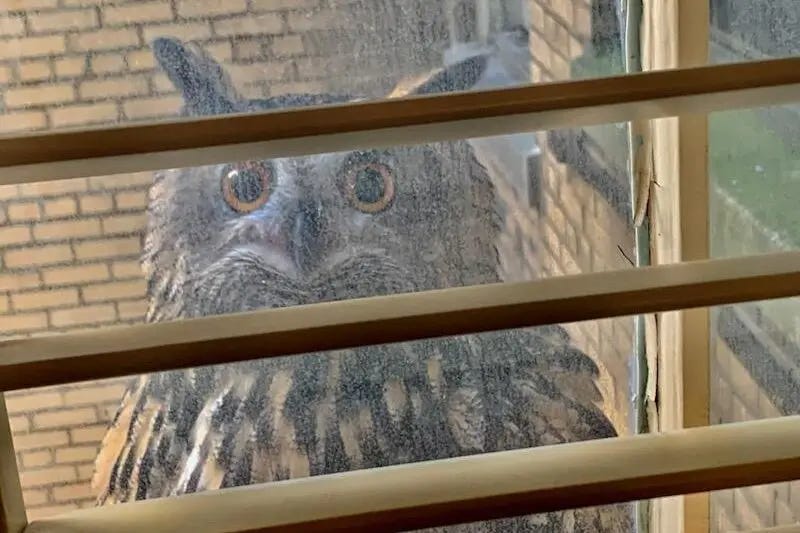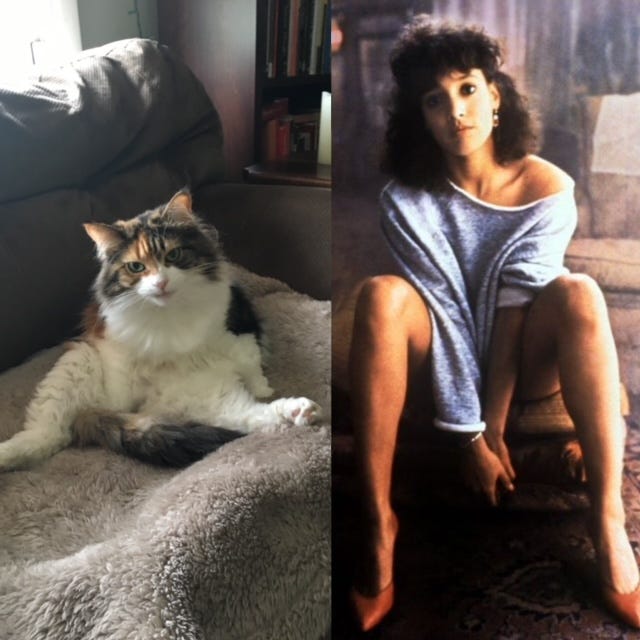The Antidote #8: Black health disparities, women and autoimmune diseases, and supplements galore
Plus, a much-needed documentary and Flaco the owl!
Welcome to The Antidote, the biweekly roundup post from The Tonic that is filled to the brim with goodies.
The Tonic is a lighthearted, heavily resourced newsletter for folks interested in learning about long COVID, ME/CFS, and other chronic illnesses. Come for the info; stay for the whimsy. Or vice versa.
Please note: my posting strategy is changing in response to my ever-shifting availability of energy (often referred to as ‘spoons’). I will generally post once a week on Saturdays or Sundays: a narrative post when my energy allows and resource roundups (The Antidote) at all other times. Occasionally I post more than once a week, usually to announce an event or to push brief, timely info out to you sooner.
Wish list shout outs!
I’m tickled by the support of my work here via the Amazon wish list in lieu of paid subscriptions (which could jeopardize my disability benefits). A big Tonic THANK YOU this week goes to fellow book/cat lover Natalie M. (Check out her awesome book and culture newsletter
). Instead of a basic cat ‘thank you’ meme, here are two I think she’d enjoy more.If anyone else is interested in showing support, see below for the info. There’s something for every budget and any help is appreciated. (Note: please be sure to include a note with your gift(s) so I can reach out and thank you!)
The Tonic is free to read - Amy is so happy you’re here! There is no paid subscription option here like with other Substack newsletters. However, if you are valuing the experience and are able, please consider a show of support by sending a gift of health, wellness, or joy from this Amazon wish list. Anyone who does gets a 📢 in an upcoming post. Thank you!
If you’re not ready or able to send a wish list gift, I would really appreciate if you would like or comment on this post. If you’re reading this in an email, you can still like or comment; scroll to the top of the message and see the ❤️ and 💬 icons. This drives more traffic to my posts and I want as many people to get these resources as possible. Thanks!
So much to cover this week, so let’s get to it.
An important documentary!
➡️ Did you know? Black and Hispanic adults have been disproportionately represented among both severe COVID-19 and also Long COVID. And yet it’s White women who receive the most care for LC (hi, that’s me). There are many reasons for this, but a few stand out: White women are more likely to have access to healthcare and to being taken seriously by medical providers than Black and brown women.
Here at The Tonic, we’ve highlighted the disparities in Black people’s, and specifically Black women’s, healthcare in the U.S. before, but in case you need receipts, go here and here and here, oh and here. Beyond that, “Google is free,” as my dear friend Kym always says. There is tragically no shortage of data on this phenomenon.
Well here comes another friend creating and directing a sorely needed documentary about Black women’s experiences of Long COVID. Chimére Sweeney got COVID around when I did, and she’s been a vocal advocate and activist since then. Please watch this trailer for the documentary and then if you are able, please donate to her so she can get this off the ground: either at Venmo (@chimere-smith-2) or PayPal.
Also, here is a great Substack piece on Chimére by
, hot off the press.COVID and Long COVID
🧠 The first objective cognitive marker in Long COVID? Read about it in: Cognitive slowing may be a hallmark of Long COVID.
👨🏻⚕️
with a great roundup post on all things COVID that caught his eye in January.⚗️
is a medicinal chemist who has researched the pants off of Long COVID and has created a non-pharmaceutical triple anticoagulant supplement called CircuGuard that can help with vascular issues/microclots that are known to plague long haulers. (Full disclosure: while this is not an endorsement per se, I did order my own bottle of CircuGuard, though orders haven’t arrived yet so I do not have any feedback to offer). You may in any event want to subscribe to Keith’s newsletter to stay on top of what he has going on. In this post below, he discusses one of the key ingredients in CircuGuard. Check out his distinction between normal fatigue and Long COVID fatigue, which I really appreciated.🥱 Here’s Health Rising with an interesting article on the drug amantadine for possibly relieving fatigue in Long COVID and ME/CFS. Have any of you tried this?
💤 This study (not a new one, but new to me) shows that 58% of the long haulers surveyed have normal to mild sleep disturbance, while 41% had moderate to severe disturbance. Respondents who reported being Black (you see?), having been hospitalized for COVID-19, or having severe anxiety were more likely to have moderate to severe fatigue.
Health miscellany
💊 Every long hauler I know has tried anywhere between one and a trillion different supplements in an effort to recover, or at least to help with various symptoms. Here’s a great post by
on making sense of supplements.👯♀️ Here’s an NIH newsletter focused on autoimmune diseases in women. Also, clues as to why women suffer from autoimmune diseases at a far greater rate than men. Lastly, can autoimmune diseases be cured? Super interesting article on some exciting developments.
👩🏽⚕️ The U.S. is experiencing a shortage of primary care doctors, especially in more rural or remote locations. Is it any wonder that some folks can’t access the care they need?
🚸 Adultification: the term used to define how Black children are viewed as older than they are. Here’s another shoutout to my friend Kym for making me aware of this piece on the adultification of Black children and how that affects their access to healthcare and thus their health. Here’s another article, this time from the UK, about the harms of treating Black children like they’re adults: ‘They saw me as calculating, not a child’: how adultification leads to black children being treated as criminals
👴🏼 What is the life expectancy where you live? The Robert Wood Johnson Foundation has a tool for you to find out. (It’s 82 in the county where I live - six years greater than the U.S. average of 76).
🍓YESSSSS…..it IS time to start talking about nutrition in medical schools.
🧀 Keto diets helping with mental illness? Whoa. (Fun fact: when I typed ‘fat’ into the emoji search, it gave me this: 🎅🏼)
🩸 Dr. Sara Gottfried debunks menopause myths.
Now stick around for…
🥳 The After-party 🥳
Added resources, joy, tomfoolery, and buffoonery
🦸🏽♀️ The five women who will be on the American quarter this year. Pretty cool.
💞 At first, I only saw the beginning of this headline, and I was mortified that this woman would leave her husband after he suffered a TBI. The full story is so touching and not to be missed: Woman Divorces Man After His Traumatic Brain Injury — and Now Her New Husband Helps Her Care for Him.
✈️ This was intriguing: Has Amelia Earhart’s plane really been found? 6 key things to know
🤦🏼♀️ Buffoons of the week: Cue the Darwin Awards music. Your buffoons of the week are those who actually thought it was a good idea to EAT FRIED TOOTHPICKS. What the? Why would anyone even fry a toothpick to begin with? On second thought, maybe the fryers are the true buffoons here.
🏆 Winner of the week: This week’s winner is Flaco the owl, illegally released from The Central Park Zoo and making a big splash all over New York City. Click on the link where his name is for a fantastic article (with the most amazing pics and videos of Flaco). Fly free, Flaco! And live long and prosper 🖖🏽
🐈⬛ 💩 And finally, it’s this week’s Cat Dump. Throwback “who wore it better?” edition.



















Amy, thank you so much for all you do. I’ve been a long hauler since April 2020. I tried a 3-week course of Amantadine in the spring of 2023. I experienced a pretty remarkable improvement in energy, but unfortunately it reverted back to baseline shortly after I finished the course. (The Iranian study flags the lack of post-treatment monitoring as another potential deficiency of their protocol - in other words, all the study participants may have reverted to their baselines after treatment as well). My doc was concerned about putting me on it long-term due to some risk of it changing my brain chemistry (?? I’m sure there’s a more scientific way to articulate this!). So that was that. Which was a bummer, bc the only side effect I experienced while on it was dry mouth - much more tolerable than some of the other meds I’ve tried. Here’s hoping more lasting solutions arise. Gratitude to you!
Such great info here. I totally thought the same thing when I saw that article about the woman who divorced her husband after his TBI and got remarried. Definitely so much more to the story than the headline represented and it was really touching.